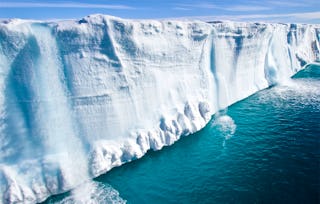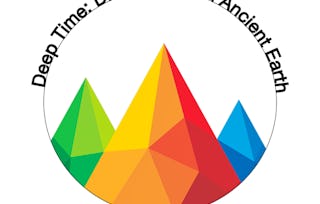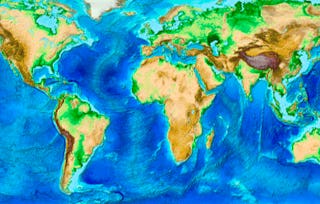Are you ready to take an incredible journey around Planet Earth and beyond? In this course, you will delve into a world of innovative science and learn from a team of Biosphere 2 and University of Arizona researchers. From plants and soils, to oceans and rainforests, the Moon, Mars, and more, this course is an exciting opportunity for anyone interested in science and Earth stewardship.

Biosphere 2 Science for the Future of Our Planet

Biosphere 2 Science for the Future of Our Planet

Instructor: Kevin E. Bonine, PhD
7,014 already enrolled
Included with
145 reviews
Skills you'll gain
Details to know

Add to your LinkedIn profile
33 assignments
See how employees at top companies are mastering in-demand skills

There are 9 modules in this course
Why would anyone build an enormous glass structure in the Arizona desert? In Module 1, you will get a virtual introduction to the engineering marvel that is Biosphere 2. Learn about the fascinating history of Biosphere 2 and how it is currently used as the world’s best research instrument for earth systems science. Discover how the ocean, rainforest, and desert can be studied in one enclosed, three-acre structure in the Arizona desert. With Dr. Joaquin Ruiz, University of Arizona (UA) Vice President for Innovation, Director of Biosphere 2, Dean of UA Science, Geoscientist, and John Adams, Deputy Director, UA Biosphere 2.
What's included
9 videos4 assignments2 discussion prompts
How do we know that human activity is changing the climate? In Module 2, you will hear from scientists who reconstruct past climates by unlocking information held in ancient trees. Discover how tree rings help us understand drought and wildfire patterns across time and space. Learn what global warming is, exactly, and how it is accelerated by carbon emissions. With Dr. Kevin Anchukaitis, Geography and UA Laboratory of Tree-Ring Research, and Dr. David Frank, UA Laboratory of Tree-Ring Research.
What's included
7 videos1 reading3 assignments1 discussion prompt
Where is Earth’s water? In Module 3, you will learn about the global water cycle and discover how much water exists, where it exists, and how it moves around the environment. Learn how Biosphere 2 and Critical Zone research are used to study the water cycle. With Dr. Peter Troch, Director of Science at Biosphere 2, UA Hydrology.
What's included
7 videos4 assignments1 discussion prompt
How can many different species coexist in once place? In Module 4, go beyond Biosphere 2 to UA Tumamoc Hill—the world’s oldest long-term desert ecology research site near the University of Arizona. Learn how living and nonliving components of the environment are related, how different species coexist, and how climate variation affects Sonoran Desert plants. With Dr. Larry Venable, UA Ecology & Evolutionary Biology.
What's included
7 videos1 reading4 assignments2 discussion prompts
What can the Biosphere 2 rainforest tell us about the future? Module 5 focuses on tropical rainforests in the Amazon Basin of South America, and the controlled rainforest inside Biosphere 2. Learn about the fascinating activity of tropical forests, the major roles they play in global climate, and the potential impacts of deforestation and climate change. With Dr. Joost Van Haren, Biosphere 2, UA Honors, and Dr. Scott Saleska, UA Ecology & Evolutionary Biology.
What's included
5 videos2 assignments2 discussion prompts
Why are coral reefs in peril, and what can we do about it? In Module 6, discover the immense role that oceans play in global climate, heat distribution, and human livelihoods. Learn why global warming is sometimes called ocean warming, how ocean acidification affects marine life, and innovative ways in which the ocean is studied. With Dr. Julia Cole, U. of Michigan, UA Biosphere 2 Marine Research.
What's included
7 videos1 reading4 assignments1 discussion prompt
How can soil be alive? In Module 7, discover the fascinating, microscopic world within soils and their critical role in Earth systems. Learn how soils provide functions and services that make them vital to our health and wellbeing. With Dr. Rachel Gallery, UA School of Natural Resources and the Environment, and Dr. Katerina Dontsova, UA Soil Water & Environmental Science, Biosphere 2.
What's included
8 videos1 reading4 assignments1 discussion prompt
Can a Mars or Lunar greenhouse help feed people on Earth? In Module 8, learn how space-farming models can be applied on Earth as we move towards a global population of 10 billion people. Discover innovative controlled agricultural systems, learn more about how plants grow, and get a chance to produce your own hydroponically grown vegetables at home! With Dr. Gene Giacomelli, UA Controlled Environment Agriculture Center.
What's included
6 videos1 reading3 assignments2 discussion prompts
When will humans live beyond Earth’s gravity? Module 9 is a fascinating and inspiring journey into space. Ignite your imagination as you learn about space tourism, asteroid-mining, moon elevators, robotic space explorers, and Mars colonization. While focusing on space, this module is sure to reaffirm your appreciation of Planet Earth. With Dr. Chris Impey, Associate Dean UA College of Science, UA Astronomy.
What's included
8 videos1 reading5 assignments1 discussion prompt
Instructor

Offered by
Explore more from Environmental Science and Sustainability
 Status: Preview
Status: PreviewAmerican Museum of Natural History
 Status: Preview
Status: PreviewUniversity of Arizona
 Status: Preview
Status: PreviewUniversity of Colorado Boulder
 Status: Preview
Status: PreviewUniversity of Illinois Urbana-Champaign
Why people choose Coursera for their career

Felipe M.

Jennifer J.

Larry W.

Chaitanya A.
Learner reviews
- 5 stars
88.27%
- 4 stars
10.34%
- 3 stars
0.68%
- 2 stars
0%
- 1 star
0.68%
Showing 3 of 145
Reviewed on May 13, 2018
Thank you for the opportunity it was very educational. I learned alot.
Reviewed on Jun 14, 2020
Great course! Easy to follow with great teachers from multiple subjects. The course is very informative and encourages you to research environmental information about the area you live in.
Reviewed on Apr 26, 2020
Exceptional, fascinating and inspiring.The lecturers and videos are really interesting and some are quite challenging.A really worthwhile course to study.I really enjoyed it and will miss it!

Open new doors with Coursera Plus
Unlimited access to 10,000+ world-class courses, hands-on projects, and job-ready certificate programs - all included in your subscription
Advance your career with an online degree
Earn a degree from world-class universities - 100% online
Join over 3,400 global companies that choose Coursera for Business
Upskill your employees to excel in the digital economy
Frequently asked questions
To access the course materials, assignments and to earn a Certificate, you will need to purchase the Certificate experience when you enroll in a course. You can try a Free Trial instead, or apply for Financial Aid. The course may offer 'Full Course, No Certificate' instead. This option lets you see all course materials, submit required assessments, and get a final grade. This also means that you will not be able to purchase a Certificate experience.
When you purchase a Certificate you get access to all course materials, including graded assignments. Upon completing the course, your electronic Certificate will be added to your Accomplishments page - from there, you can print your Certificate or add it to your LinkedIn profile.
Yes. In select learning programs, you can apply for financial aid or a scholarship if you can’t afford the enrollment fee. If fin aid or scholarship is available for your learning program selection, you’ll find a link to apply on the description page.
More questions
Financial aid available,

